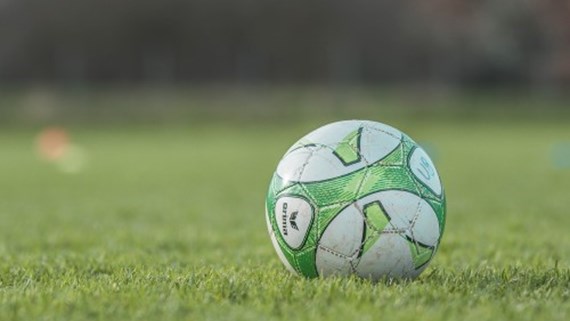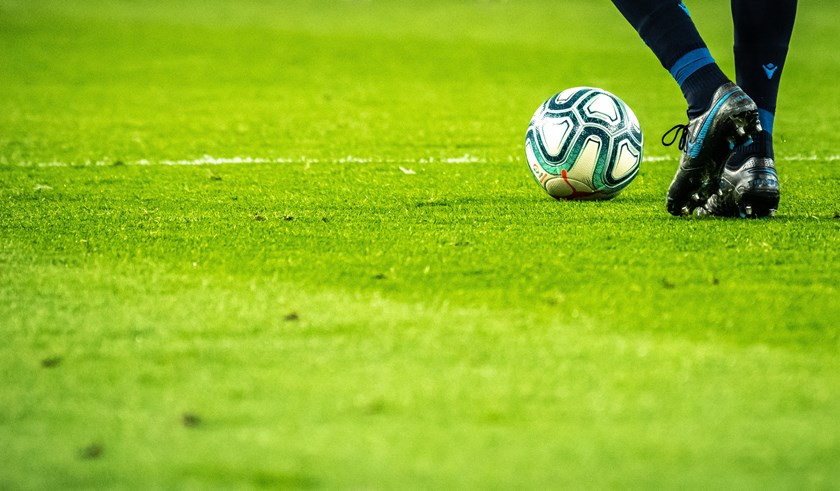Preparing players for the “After-Life”
Insight

The statistics after a professional football career, tell their own story: one in two are divorced within two years; one in five are bankrupt within five years; and in 2016 more than 140 former players were behind bars.
What most research, anecdotal and empirical, shows, is the loss of identity an athlete suffers on their professional career ending, all the more so if it is ended suddenly through injury. The 'thing' that has defined the very essence of who they are is taken away from them, sometimes brutally. This sense of loss, for some compared to bereavement, is unsurprising.
From a young age, athletes have been driven to succeed in their chosen sport. Those around them – whether parents, coaches, clubs and agents – encourage and drive the sense of destiny and determined dedication for the athlete to be the very best sportsman or woman they can possibly be. Indeed, blessed with great talent, why would you not want to extract every last ounce of achievement from a career that huge numbers dream of, but very few of whom live?
Being feted from a very young age only adds to the natural sense of immortality most young people feel. It is impossible to imagine yourself twice your age. The sense of worth is hugely exacerbated today where athletes can earn very substantial sums at a young age; be worshipped by armies of fans both on the field and online; and become accustomed to huge success and pampering as those around them take away every day cares to free the athlete to focus on 'what's important'.
"When a player ... retire[s], and it's more difficult if you retire prematurely through injury, you often have to go through a period of bereavement."
Gary Stevens, former England and Spurs footballer
What is also often the case is that athletes are positively encouraged by those around them to ditch their academic studies. On one level this is understandable: elite sport is driven by short-termism, the need for instant success and athletes are required to exclusively dedicate themselves to this end. There are always some exceptions to this generalisation (history graduate, Dina Asher-Smith being one current example), but they are rare and held out as such.
There are some athletes who are also able to move, apparently seamlessly, from performer to pundit or coach/manager. However, numerically, those are the lucky few given the number of roles that actually offer themselves up. The pundits' sofa is only so long, and those who make it typically stay sitting on it for very many years.
As much as family breakdown and financial meltdown feature at the end of careers, the sense of loss drives mental illness, which can lead to extreme outcomes such as various addictions. Cricket, for example, has such a history of mental illness that books have been written on cricketer suicides alone. Today in the UK, there are organisations like Xpro and Playon Pro, which have been set up to deal with former athletes who have fallen on hard times, as well as a number of player associations having foundations and networks to help ex-athletes in difficult circumstances.
Fine organisations these are, but is it not better to deal with retirement up front, well in advance, to reduce the need for such organisations to have to pick up the pieces? In reality, with very few exceptions, only Premiership footballers, top golfers and tennis players earn sufficient sums during their careers not to have to consider from a financial perspective what they may do for the rest of their lives. However, that does not address the hole left in their lives when the core aspect of their life is removed.
"Who helps players deal with emptiness and uncertainty when what they aspired to become is taken away?"
Spencer Hidge, CEO Premier Sports Network
In recent years, there has been considerable discussion and sports-specific reports on the duty of care sports and clubs owe their athletes in respect of their physical and mental well-being. The player welfare duty, both moral and legal, does not – yet at least – extend to national governing bodies (NGBs) and clubs being legally obliged to assist players plan for the real world after their sporting careers end. While that day may come, although it is not advocated, the need for preparedness is as obvious as it is generally lacking.
While a few will have future careers in or around their sport, the vast majority will have to look at other options. If preparing for life after sport is seen as some actuarial, insurance type exercise, this is unlikely to capture the imagination of anyone, never mind the 'immortal', risk-taking, adrenaline driven, young athlete.
Athletes, and those advising them, need to understand that they have their own personal brand. This is not restricted just to the likes of the Ronaldos and Beckhams. Any athlete who has had a decent career will have the opportunity to leverage off their sporting achievements and the unique experiences sport gives athletes, whether that is on a national or local scale. Players need to understand that they have the opportunity to build their brand throughout their career. Of course, a career marked with controversy (cricket's spot fixers come to mind) will undermine their perceived and actual value.
While an athlete's personal brand can open doors, players also need to understand they need to offer something beyond their mere name to generate a successful post-career existence. Developing skills and interests beyond their sport will clearly make them more marketable. There is also evidence that where there is a concerted effort in encouraging players to have interests outside the 'day job' while still playing, this also has a positive impact on them individually and their sporting careers. It is not coincidence that the English rugby club most associated with this approach – Saracens – has been England's most successful club in recent years.
"When the bubble bursts as a professional sportsman, if you haven't prepared for life afterwards, you're in serious trouble."
Robin Smith, former England and Hampshire batsman
It is not suggested that NGBs and clubs must establish formal programmes (although that is not to be discouraged). Those NGBs and clubs that do so will add long term 'soft' value to their sport and clubs which will assist in recruiting the next generation (and their parents importantly) which may also lead to direct benefit.
More player development pathways that include encouraging extra-curricular interests and study are to be encouraged. Network building, work experience, athletes working with a sports' commercial partners (other than just in the hospitality tent) and life coaching are all ways to develop an athlete so as to give them a wider perspective on life.
If there is any one person who does owe an athlete a legal duty to look beyond their playing career, it has to be the agent. She/he is obligated to act in the players' best interests which necessarily must include preparing a player for their second career. A smart agent will see the value in this given the potential for direct (or indirect) financial reward long after their playing careers have ended. Is it a surprise that Gary Lineker, David Gower and Michael Atherton have remained represented by the same agent long after their careers have ended?
How many Premiership footballers does it take to change a light bulb? Answer: none, the player liason officer will do it for them.
All those involved around elite athletes should consider the contribution they can make to giving an athlete the building blocks for their post-career years. In many ways, this involves creating an ecosystem in which players have the opportunity to build second careers. There will always be those who will go off the rails at the end of their career, no matter what opportunity is provided to them. However, if athletes are part of an ecosystem that gives them the chance to find their level post their career, this will ensure more graduate from sporting success into the real world. It is suggested that those running sports and clubs should see greater numbers transition successfully as a way of building their own sport or club's long-term value, whether that be with future parents, athletes, internally or with commercial partners.
One key feature of elite sport which is difficult to recreate is the adrenalin rush. The sense of euphoria adrenalin gives an athlete is one of the unique experiences sport provides that few other activities can match. That may be an aspect of sport that cannot be replicated but learning to do something which requires performance in a limited time period may allow them to get closer to replicating it.
More in and around elite sport recognise the importance of an athlete learning to build their career for life. However, much more remains to be done.
Starting with a dinner in Manchester on 21 November, the Farrer & Co Sports Group are running a series of events raising the issue of building player careers for life. If you are interested in discussing the issue or getting involved, please contact Julian Pike.
This publication is a general summary. It should not replace legal advice tailored to your specific circumstances.
© Farrer & Co LLP, November 2018







